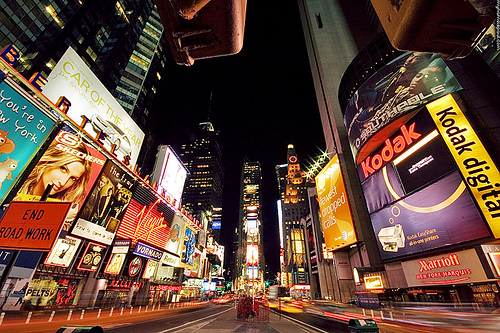
Much like with the consumption of meat, there was a time in the history of markets and exchange when marketing and advertising were not only important but necessary for maintained health of the economy; that time has clearly passed. In a time when distances were real, that is to say accompanied by time, the dissemination of product information was limited by the spatial exposure of the market. The growth of specialization and international trade lead to a distancing of the consumer from the point of production of goods. Marketing at its best was a form of education, an aid to the consumer who became increasingly unable to “see for themselves” the quality and contents of those things that they were buying. Marketing was an aid to the consumer, a nourishment, an enabler of informed decision making. Marketing hastened product knowledge.
Today the informational landscape of the market is wildly different, and by necessity the form of the market itself has changed dramatically, one might even argue that it has disappeared. In this new arena, the need for marketing, understood in the terms which it was conceived, is increasingly convoluted; however, paradoxically, its prevalence has only increased. This is because the myth of modern advertising still adheres to the antiquated form taken upon its inception. The spaces that we explore both digitally and physically are increasingly encroached upon by advertisements. This change was gradual, and we grew tolerant before we had a definitive opportunity to choose. The ends of advertising remain comparable, the facilitated buying and selling of goods and services, yet the means have changed. The information we receive today is highly processed and abstracted from the essence of the good or service; we passively consume such information and are left feeling empty and unsatisfied, and therefore we agree to take more, and more. Sites, both physical and digital, perceived to be public are now clogged with banner and billboard or worse.
It is true that meat was once an important part of a nutritious diet, yet today the system has dramatically reconceived and repackaged a different product under the same name yet at a greater distance. The new product is not only devoid of substance but also detrimental to our health. Such is the case of marketing in the economy. Just as contemporary meat is no longer food, marketing is no longer information, and both are machines for the gluttonous slow demise of their consumers. Marketing no longer provides for a healthy economy, it subverts it in ways we have yet to see. What we could use are more vegetarians.





